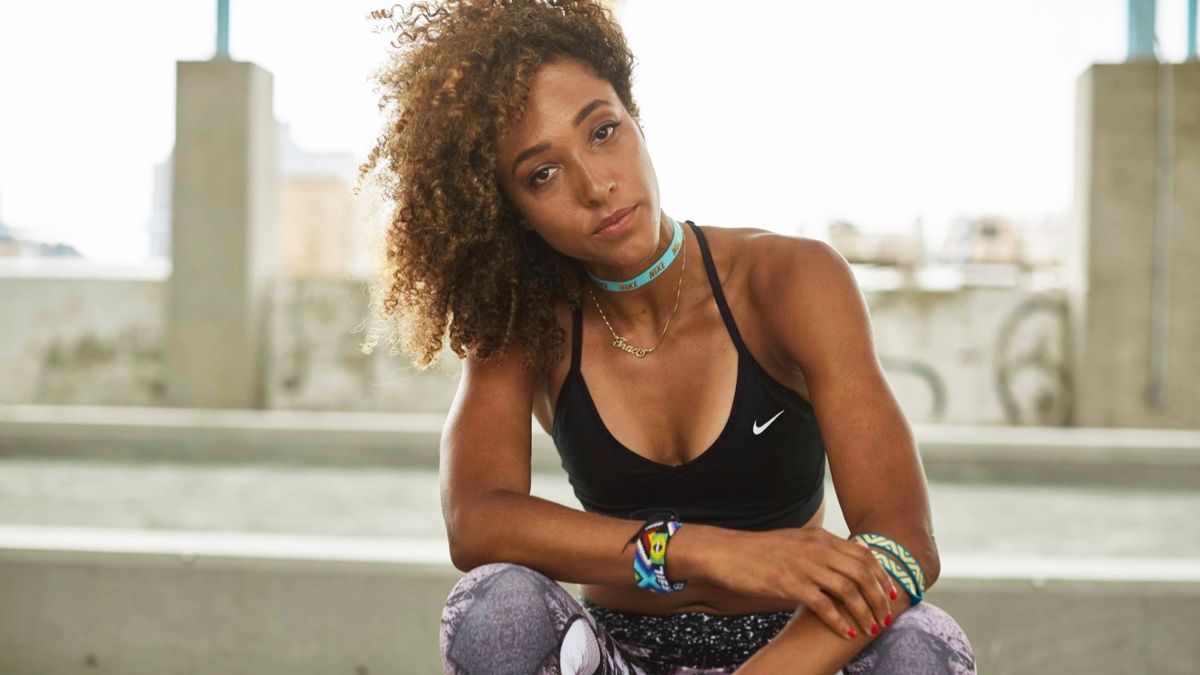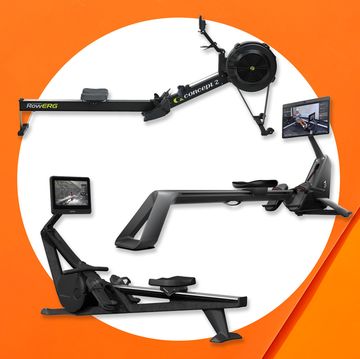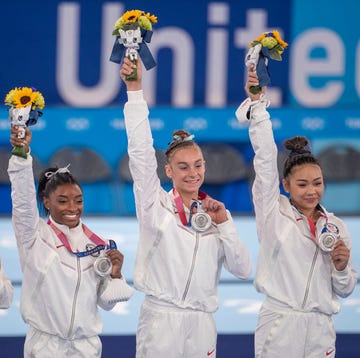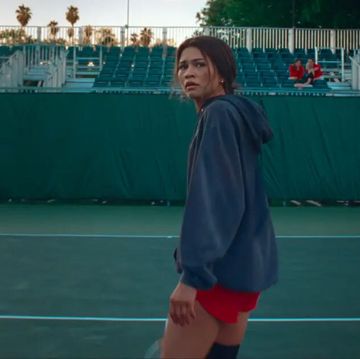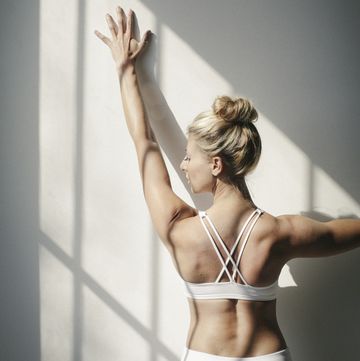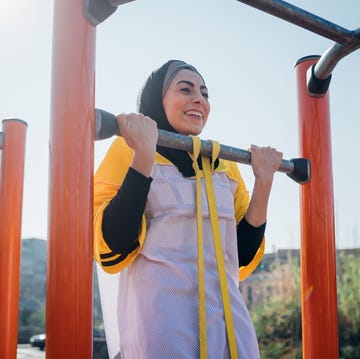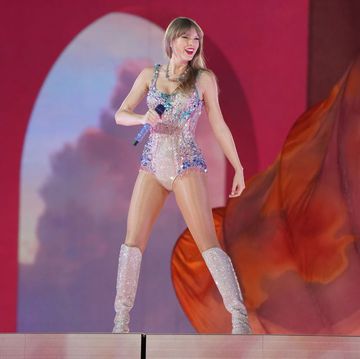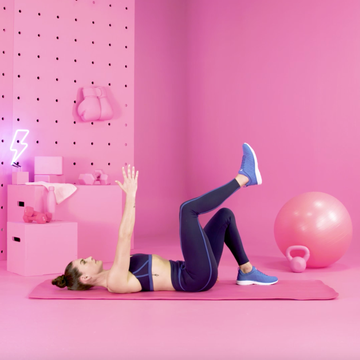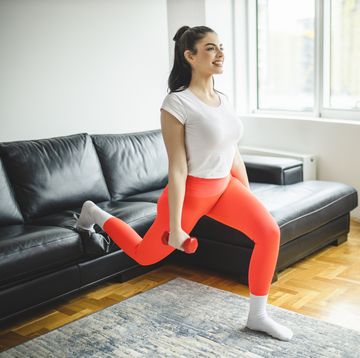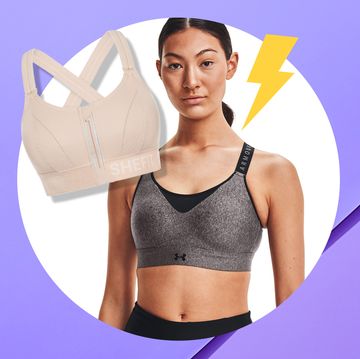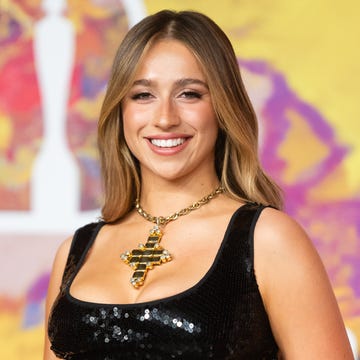I still distinctly remember auditioning for one of my first fitness modeling campaigns. They were casting two women: one white, one black.
There were a number of models going out for the gig, but one in particular had a very similar "look" to me: a.k.a. light-black skin and curly hair. She got the job; I didn't.
I've never questioned my love of the fitness industry, and I feel so grateful to work in this world—but that scenario was one of the first times that one small, not-so-great part of the business became clear to me: the need for a “token black woman.”
It Wasn't Always About Race
I was first introduced to the fitness world through competitive gymnastics, when I was a kid. When it came to competitive sports like that, everything was simple: You either won or you lost. You either stuck your beam routine or you didn't. The sport only cared about the scores at the end of the day. And the better athlete or team always won.
I never thought about the color of my skin, and was never treated differently in that world. From there, my love of fitness and movement blossomed in so many different ways. In my career, I've been a runner, yogi, Nike trainer, professional back-up dancer (I even toured with artists like Jay-Z and The Black Eyed Peas), and fitness instructor at studios like Project by Equinox.
But it wasn't until I broke into the fitness modeling world that I realized what it meant to be "token."
At Some Castings, My Skin Color Worked To My Advantage
After going to several auditions, and working on a few campaigns as a fitness model, I realized that most companies or brands have a few roles they’re trying to fill, like blonde, dark-skinned black, light-skinned black (a.k.a. mixed), Asian, and racially ambiguous. And typically most brands aren’t hiring more than one of each type.
Sometimes, this would work to my advantage—like when no one else with the right skill set looked like me. (I fall into the "mixed" category—I've been told before that my look sometimes "crosses over" to both black and white audiences.)
For example, one time another friend (also black with curly hair) and I were up for the same dance job and I booked it based on my look and “type” even though she was definitely a better dancer. She was a few shades darker than me, and I suspect that may have been why I got the gig.
Of course, at the end of the day, no one outright said I got it because I was lighter. It's just something you sense.
Other times, it would work conversely, and I wouldn't get a job because my "type" had already been filled.
Both scenarios feel discouraging. In one, I feel undeserving of the job; in the other, worthless because I didn't book the gig.
Outside of these types of situations, I never feel discriminated against on the job, or in other areas of my career, like dance and being a fitness instructor. I've grown accustomed to the whole "token" situation—it's only annoying if I let it annoy me. Instead, I've allowed it to motivate me to push for greatness in everything I do, and make my talent speak for itself.
Rising Above
I think ultimately it's on us as black females to support each other in our respective disciplines, which can be challenging because we are each other's competition. It's natural to be territorial, but I think ultimately we're all so different and unique.
Many amazing women have started movements to help bring people together. Ally Love, for example, is the creator of Love Squad—a sports, fitness, and lifestyle website that unites people from all walks of life around their shared love of sweat. It's about bringing the fitness community together through workouts and events.
Personally, my goal is to be the most unlike anyone else I know. I want to have my own story line in this fitness game—not just fill a diversity slot. I've tried to remain to true to how I like to train and what's authentic to me—I run, I dance, I practice yoga. There's diversity in how I train, and how I teach. I'm always striving to pursue balance in an industry that isn't always balanced.
At the end of the day, I'm going to do my own thing. If brands like what I'm doing, then great. And if not, that's fine too. I think if you're great at what you do, your greatness stands alone.
